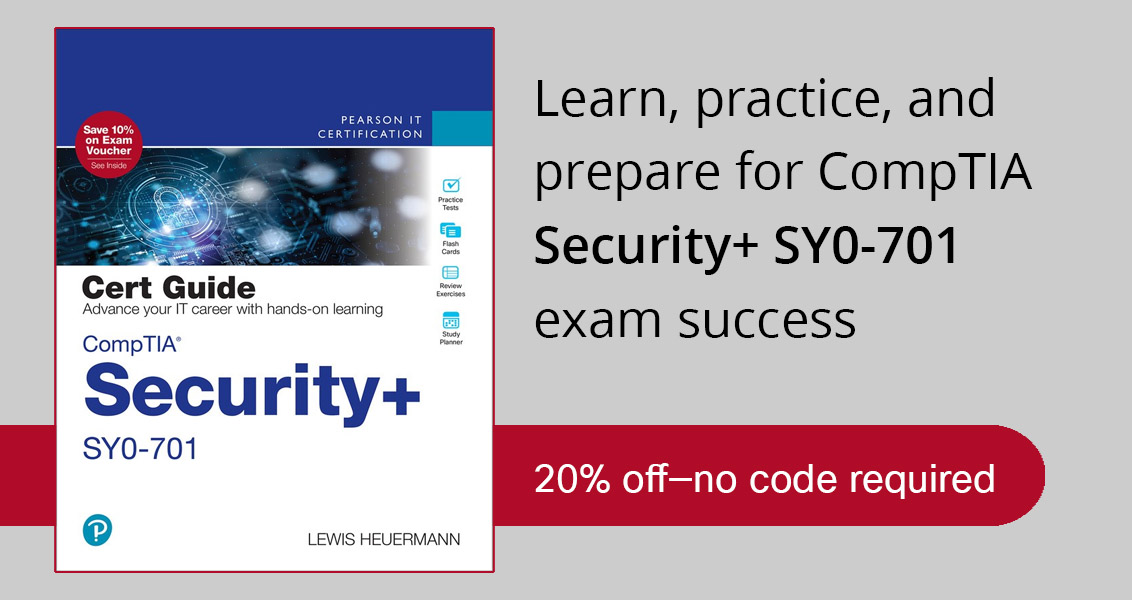 |
About Us
Pearson IT Certification is the leader in IT certification learning solutions, with a long tradition of delivering proven learning tools and educational training materials that have helped certification exam candidates succeed. Learn from world-renowned authors such as Wendell Odom, Sander van Vugt, David Prowse, Kevin Wallace, and Omar Santos and a suite of products and solutions that address the learning, preparation, and practice needs of a new generation of certification candidate.
Pearson has formal publishing partnerships with leaders in technology, including the official publishing programs of Adobe Press and Cisco Press. Pearson is also the official distributor for Microsoft Press.
Exam Profiles
Exam profiles are the perfect tool to help you prepare for your next exam. Learn exam details, tips and tricks, recommended study resources, and much more.
- Exam Profile: Cisco 200-301 CCNA
- Wendell Odom explains the differences between the outgoing CCENT/CCNA exams and the new consolidated CCNA 200-301 exam, gives context for the exam as a stepping stone, and recommends additional study resources.
- Exam Profile: CompTIA A+ Core 1 (220-1001) & CompTIA A+ Core 2 (220-1002)
- David L. Prowse walks through exam details, highlights trouble spots, offers preparation hints, recommends study resources, and suggests next steps for the CompTIA A+ Core exams.
Articles
- Communication and Meeting Management
- In this sample chapter from CompTIA Project+ PK0-005 Cert Guide, 2nd Edition, you will learn various communication factors and modes, common challenges to team communication, and the purposes of meeting-specific roles. This chapter covers the following objectives for the CompTIA Project+ exam: (1.8) Compare and contrast communication management concepts and (1.9) Given a scenario, apply effective meeting management techniques.
- Operating System Hardening
- In this sample chapter from Network Defense and Countermeasures, 4th Edition, you will learn how to configure Windows and Linux systems for secure operations, apply operating system patches and application patches, and securely configure a web browser.
- Development Approach and Life Cycle Performance Domain
- In this sample chapter from Certified Associate in Project Management (CAPM) Exam Official Cert Guide, you will learn fundamental concepts involved in the Development Approach and Life Cycle Performance Domain and how to use deliverables and milestones in project planning and execution.
- Managing and Understanding the Boot Procedure
- In this sample chapter from Red Hat RHCSA 8 Cert Guide: EX200, explore how the boot procedure on Red Hat Enterprise Linux is organized, including how to use Systemd targets to boot your Linux system into a specific state and how to apply changes to the GRUB 2 boot loader.
 |
Quick Links | ||
|
Certifications |
Learning Products |
Site Features |
- AWS Certified Solutions Architect - Associate (SAA-C03) Cert Guide
- Sale Price: $34.99
- You Save 50%
- Learn More
- Buy
- CCNP and CCIE Enterprise Core ENCOR 350-401 Complete Video Course
- Sale Price: $199.99
- You Save 60%
- Learn More
- Buy




